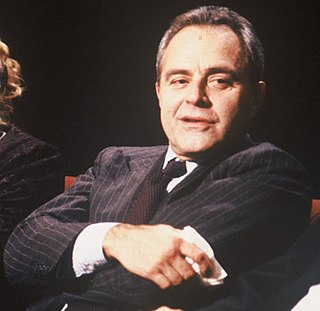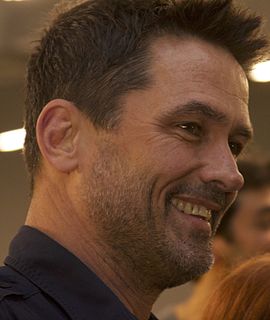A Quote by E. O. Wilson
So, the ant way of life is very ancient and very successful. As far as human beings are concerned, we've been around for only one million years--too soon be sure.
Related Quotes
People expect artists to be too normal, I think. I've been around enough of them now to see that they're very extraordinary human beings who behave differently than ordinary human beings. If they weren't as sensitive as they are, they wouldn't be great artists. They are not the same as us. People should just learn to accept that.
In fact, one of the arguments for searching for intelligent life in space, elsewhere, is that we have no evidence that intelligence has any survival value. The most successful creatures on this planet are the cockroaches. They've been around, what is it, 100 million years or so and I suspect they'll still be there 100 million years in the future. Maybe intelligence is an evolutionary aberration which dooms its possessors in the way armor may have doomed some of the dinosaurs.
If the basic human nature was aggressive, we would have been born with animal claws & huge teeth -- but ours are very short, very pretty, very weak! That means we are not well equipped to be aggressive beings. Even the size of our mouth is very small. So I think the basic nature of human beings should be gentle.
We have the right to rid our houses of ants; but what we have no right to do is to forget to honor the ant as God made it, out in the place where God made the ant to be. When we meet the ant on the sidewalk, we step over him. He is a creature, like ourselves; not made in the image of God, it is true, but equal with man as far as creation is concerned. The ant and the man are both creatures.
I'm not able to completely escape naturalism. It's very difficult to escape from naturalism without being too dry. That's what I try to do in my cinema - escape naturalism and do films that are, at the same time, realistic but have a lot of fantasy. It's very difficult in cinema to get away from what life is about, from real life. The way the actors work has to be realistic - you can't do Baroque acting - so it's very complicated. And, we're human beings, so we're not perfect. I'm trying to do something different.
Too many people hold a very narrow view of what motivates us. They believe that the only way to get us moving is with the jab of a stick or the promise of a carrot. But if you look at over 50 years of research on motivation, or simply scrutinize your own behavior, it's pretty clear human beings are more complicated than that.
I've done my share of reading about Abraham Lincoln, throughout my life, and he wasn't always carved in stone. He was a human being. He was a very thoughtful, self-educated, complex, magnanimous human being, who was very, very strong, very smart and very canny, with a very strong sense of what was right and what was wrong. Through all that, he's become an icon, over the years, and some of his warmth and humanity has been lost. You don't tend to think of Lincoln as this warm, funny person, but he was.
How far does one combine resistance to over-control with social justice, i.e. tolerable living for people in general? We are too selfish to be trusted, if left free, to give away enough to make people comfortable enough to give them a chance. Yet if all this is ordered for us, as to some extent it has to be, it so soon leads to tyranny. It is a very difficult problem. If only human beings had more pity, unselfishness, and justice and didn't need coercion to treat each other decently.
If we human beings rely only on material development, we can’t be sure of a positive outcome. Employing technology motivated by anger and hatred is likely to be destructive. It will only be beneficial if we seek the welfare of all beings. Human beings are the only species with the potential to destroy the world. Because of the risks of unrestrained desire and greed we need to cultivate contentment and simplicity.




































